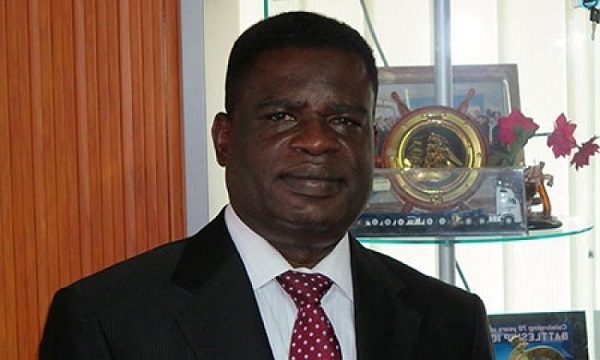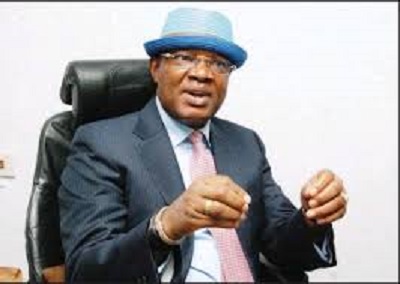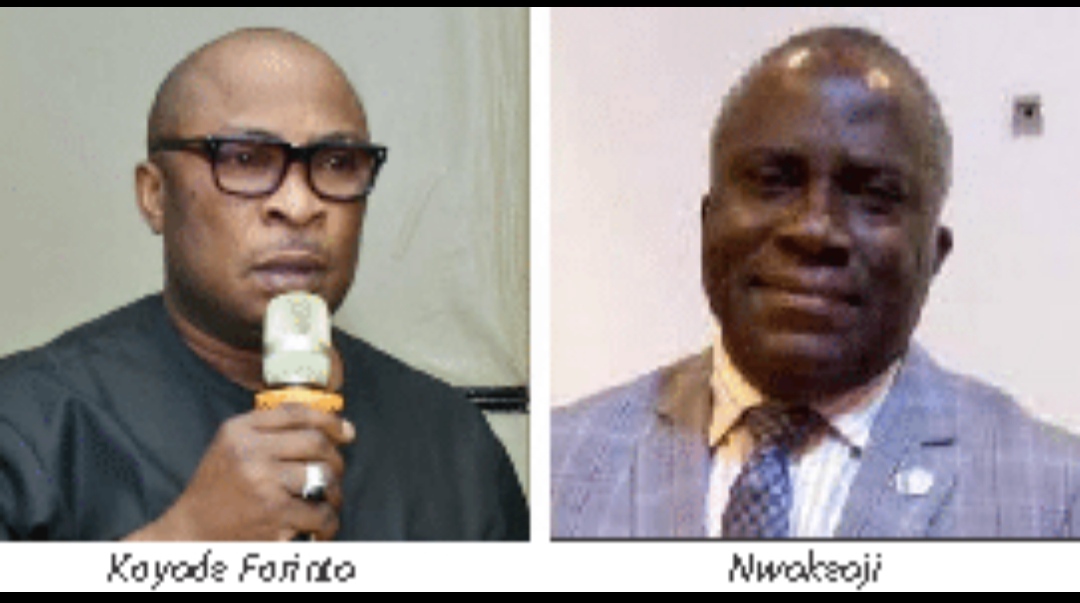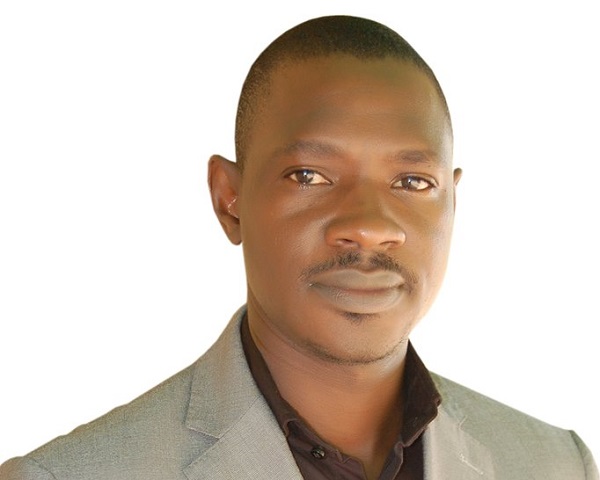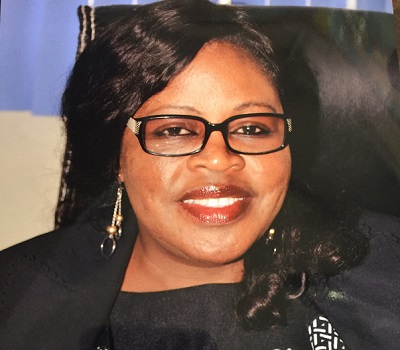I Have No Sympathy For Unemployed Graduates – NOTAP Director
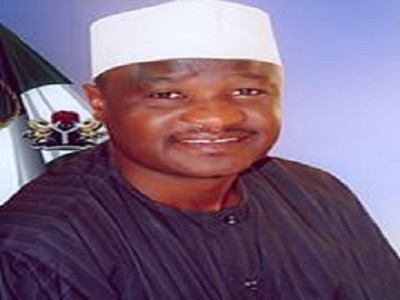
By Oyeniyi Iwakun, Kenneth Jukpor
Engr. Nwosa Lucky is the Director, Technology Acquisition and Research Coordination (TARC) of National Office for Technology Acquisition and Promotion (NOTAP), an agency under the Federal Ministry of Science and Technology responsible for technology promotion and regulations in Nigeria. In this exclusive interview with MMS Plus, Engr. Lucky sheds light on the composition, responsibilities, engagements and other activities of NOTAP and why Nigeria’s economy isn’t growing. He also explains how Nigerian graduates can maximize available opportunities and create employment for themselves. The interview was done during stakeholders meeting and tour of the Nigerian Export Trade Hub (NETH) in Lagos International Trade Fair Complex, Lagos.
Excerpts:
The National Office for Technology Acquisition and Promotion (NOTAP) seems to be relatively unknown to many Nigerians, why?
That’s not true. NOTAP is well known especially for those people who follow the trend of events at the national level. But the problem is that Nigerians hardly give attention to things that will give them knowledge, they rather pursue things that will earn them money.
How strategic is this event and how are you planning to transform our economic fortune through technology transfer?
First of all, let me give you a brief history of NOTAP. In the 1970s, the so called developing countries ganged up and went to the United Nations (UN) and said technology marketing has become a sellers business. They give you the products, determine the prices, and tell you how to operate it. In fact, they make all the laws. All they get from us is money and unfortunately we discovered that majority of the things we were getting as technology was obsolete. They are things they were no longer using.
We had India, Brazil, Taiwan and Nigeria, among the countries that protested. There were eleven countries that took a stand and the UN after a lot of negotiations decided that every country should go and set up an office that will regulate their inflow so that they can devise ways of transferring technology. With that done, the law that NOTAP is operating with was not created in Nigeria. Interestingly it is only NOTAP that sees the Nigerian economy from the bird’s eye-view. No other agency of government does it. The Central Bank of Nigeria (CBN), Federal Inland Revenue Services (FIRS), National Communications Commission (NCC) and so many other agencies are interested in money. They are sectoral. It’s only NOTAP that deals with technology and technology is everywhere.
Over the years, this country seems to have progressed in terms of technology. The reason people do not know this is because they haven’t paid attention. We are surely a country of tangible people. We don’t believe in the intangible and it is the intangible that brings wealth. Today as we speak, the NOTAP equivalent in Brazil has over eighty thousand (8,000) members of staff. India no longer has just one office; they have NOTAP offices in several sectors and so on. It is only in Nigeria that we are still talking about less than one hundred and fifty (150) people as staff in NOTAP. Now, think about it; Nigeria has over one hundred and fifty two (152) universities because that’s the workshop for knowledge. We have over one hundred and twenty five (125) polytechnics (another workshop), about one hundred (100) colleges of education, (the third workshop). Over three hundred (300) research institutes, (another workshop) with less than one hundred and fifty (150) people to manage it in terms of technology. How is that possible?
You are overwhelmed, and like you said, you think we are unknown, but for at least four years, my Director General (DG) was almost on Nigeria Television Authority (NTA) and Channels Television and other national television stations everyday talking about technology transfer and the processes that this country should follow. Nobody cares, nobody listens. Like the Director General said when he was making his comments, he said that we have been able to do something about the Information and Communications Technology (ICT) but that’s just like a drop in the ocean of what we have to do. Thank God we went together to inspect the things we are planning to export in this hub and you see that all of them are raw materials. You are sending out items at ten kobo and when they are coming in, it is ten dollars but you have the capacity to change them by adding value so they go out at the rate of fifty cents so that when they are coming back, it would be in dollars. But we are not going to do that, we are interested in sending out raw materials even to send it out now, we cannot do that with ease.
How do you mean?
Do you know how much of these items will enter into a container? Then, how many containers are you going to ship? Do we have the farms; I mean the agricultural farms that are set up to meet that demand? No, we don’t. Where will the produce come from? The non-oil sector I think. If you now ask people if they are interested, the response will be, no. How then do we get the things to export when the will is not there to produce?
What are you doing to ensure that more Nigerians come into appreciate the crucial role of NOTAP in the nation’s development?
That’s why we are here. But most Nigerians don’t know, especially in our universities!
As we speak right now, in Delta State University, DELSU, they have been requesting for a Technology Transfer Office. In fact, recently they got a patent that was mid-wived through their collaboration with Petroleum Trust Fund (PTF) and it was a big event. Then I asked them “what are you going to do with this?” Of course, what they are going to do is to frame it but because they have protected it in patent. We would now import products because that knowledge has been deposited in the Nigerian registry and anybody can access it. When you access it, you can now take it to another country where it is not protected and be manufactured and like everything, intellectual property management and technology transfer have their methodologies. We are trying very hard but like I said from the beginning, knowledge is not our strongest point. In Nigeria, we are not interested in knowledge but we are very much interested in money.
With this, how will NOTAP get more people that are knowledgeable?
I have talked to you and you are a Nigerian. Now if you are interested, even as a journalist, there are innovations you should be abreast with. These innovations can be protected because that is what intellectual property is all about. You protect your intellectual property and find a way of moving it into the market which you will benefit from. It’s not about universities alone; this thing we are doing here (NETH project) is more of an innovation.
It is an innovation because this place has been abandoned for the past thirty years without any effort put in place but for the first time, somebody has come and brought an innovation for an export hub which has automatically revived the edifice. But it didn’t take off as an export hub because that would have presented some problems. It took off as a bonded terminal to bring in other products. So, it was easy to get that done even though it’s a bit difficult. Nevertheless, it’s easier than going to set up an export hub. It is the way we think and we must change that thinking strategy like Prof. Nick Ezeh, Chairman of Aulic Group is saying. We have to learn the culture of work and industry in Nigeria. We don’t work in Nigeria but it takes a lot of work to succeed. We took it as a joke when we say let’s walk around this facility but there are people who work harder than this for hours even at my age, out there in Europe. Can any Nigerian do it, if they do today, they will start complaining tomorrow.
What’s your final words to unemployed Nigerians especially the young ones?
My words are very simple. I have no sympathy for graduates for unemployment because remember less than five per cent of the globe are graduates. It means that you are a special breed. In order words, inside yourself, there is enough for you to develop not only yourself and your community but also for the rest of the world as a graduate, irrespective of what you studied. My advice for the youths is; stop complaining, don’t revolve around the same circle, be creative and think less about people who are at the top. You have to strive to be there also because if you bring out something new it can catapult you beyond your expectations.
Bill Gates is not the American President but is there anybody in the world that doesn’t know him? In fact, there is none in Nigeria today that Bill Gates doesn’t collect money from (whether directly or indirectly). So, as a young person, whether a graduate or not, don’t restrict yourself to looking at governor or political leaders that haven’t done well. Concentrate on something good. It is only when you have gotten yourself out of your cocoon that you talk and your voice will be heard. So, every Nigerian has the capacity within him or her to do better and come up with an innovation. That’s what I will say. It’s not about government, it’s about us.
Don’t you think the constraints and limitations placed by our society is another challenge?
There are no constraints. I often tell people who come to me to say they have no capital to set up a business that they have no problem. First, you want to set up a business; that is a problem. Inside that problem what are the sub heads? Isn’t capital one of them? So, when you think about it you will find a way to solve the problem. Must you say you don’t have capital? Who will generate it for you? You have to think about how to generate the capital yourself.



